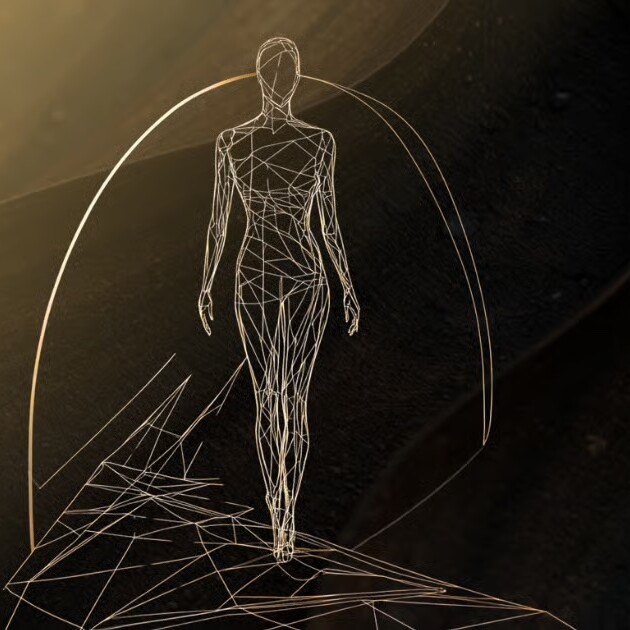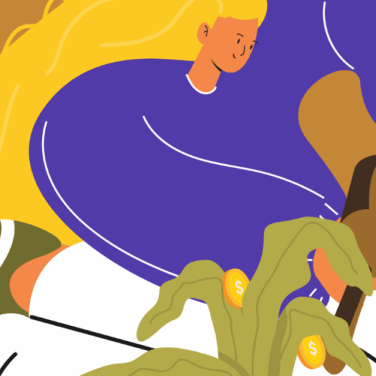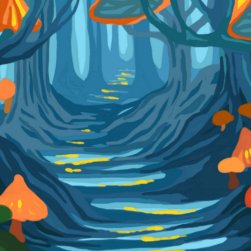It takes a village
Last week, I interviewed Phoebe Tickell on imagination activism and the space between having solutions at hand and deploying them in the right way to build a better world.
Phoebe defines moral imagination as a combination of what is possible and what should happen, saying that collective, bottom-up imagining which honours people’s values, their culture and history allows us to envision what we know to be right and enact those values. She also spoke of the “action gap” between the technology, democratic process and economic frameworks we have at hand and making the right choices. She’s using her organisation Moral Imaginations to close that gap and unleash that inherent sense of care, compassion, love and well-being which most people prize as values, and seeding those values through organisations. It is terribly important work, work she recognises exists within an ecology of other change-makers and systems-disruptors, all of whom are trying to close, or cross, that action gap before cataclysmic ecological breakdown impedes our ability to help one another.
If moral imagination is a combination of what is possible and what should happen, what is the other should which impedes that action? What antithetical act of deposing imagination creates the “shoulds” which drive society to ever-worsening overshoot, increasing inequality, health crises, biodiversity breakdown and catastrophic climate change? If what should happen is an act of imagining, what is the nature or framework of the status quo which states the complex systems we organise ourselves with today cannot or should not be disrupted? If moral imagining is an act of collective vision, whose vision dictates the other should?
System dynamics dictates that no one individual can manifest a complex system; individuals exist within systems, both acting upon and acted upon as parts of that system which itself is composed of those individual actors and their relationships (thus negating the value of the word “individual” in such a context). Components of the system, then, are products of the system. Some, however, due to inequitable distribution of resource and power have more force with which to act upon the system; the impact of their relationships ripple farther. This is why fingers are rightly pointed at despotic leaders, Silicon Valley tech-evangelists, fossil fuel executives and royal families. Nonetheless, given the system within which we exist, we must bear in mind that their power comes from reinforcing their position and their role within the system; their power would immediately diminish if they were to remove themselves from the relationships, or affect them differently. Elon Musk, for example, would be discarded by capitalist investors and right wing media propagandists if tomorrow he restructured his organisations as social cooperatives and directed Tesla towards making electric public transport. That action would, of course, have a positive impact and ripple through—but not as far as the ripples he causes when he reinforces the relationships and expectations already existing. Friction causes disruption; ripples prefer a smooth surface.
The “should”, then, which demands Elon maximise profit, that fossil fuel executives expand oil fields, that palm oil executives log forests to expand plantations is not merely a lack of morality on their part. It is a lack of imagination due to being acted upon by a system which reinforces growth and threatens to discard components which begin to misbehave and disrupt. We are gripped by an imperative which threatens homelessness to the individual and bankruptcy to the corporation. Whilst growth itself is a redundant ideology, the should it enacts upon the system is a very real force encoded into law; the value of shareholders reigns supreme, and in a dislocated world in which shareholders are not communities but rather dislocated individuals the only relationship they share is the imperative they enact upon the corporation to grow. It is the homogenisation, again, of humanity to one simple goal. Disrupting such inequity can, by definition, only come from imagining and creating new ways of relating to one another, from complexifying and embodying our relationships. Lessening the weight of that mass, homogenous should demands organising the possibility to exit. Yet, every exit will diminish the impact of that relationship on the system which exists. Changing the system does not mean changing it from the inside; changing the system must be an act of creating new ones which gradually attract more components, more relationships, more people—one in which they, by definition, will have more power to act because that system will reinforce the actions of communities to care for one another and the more-than-human world.
Systems change, then, isn’t tinkering with what exists and sinking energy which will lessen its return by working within that which will reject it. Systems change is diversifying the systems within which we can exist, and increasing the power of those systems, and their components, by building as many relationships as possible. Systems change, then, is an act of imagination so vast that it acts as an invitation, as a bridge. Closing the action gap is not making the right choices for the world we have, it is making the right choices for a world we want. Nobody is in the driver’s seat in the world we have, for the world we have is a perpetuation of something so complex it can only support itself with one unifying message: More. It’s why nation states need flags; gathering diversity demands a simple unity. A good world could be unified indeed by a simple message, by care, by compassion, by stewardship. But the actions we take to get there must be diverse and imagined collectively, if only to allow for the complex system to emerge and continue evolving. We are no longer evolving today. We are stagnant as late-stage capitalism gorges itself to death. The natural world shows us that stability demands change, but the big picture we have trapped ourselves and the world within rejects change for fear of destabilising that which is. Change, then, is not reforming that which is—it is creating that which isn’t. Imagination is conception. Action is birth. Everything else is care.
They say it takes a village. Nobody says it takes an institution because institutions exist to smooth away the friction of disruption. Yet, it is friction which gave us fire. Without it, we would have nothing around which to gather and share stories; without it, we would be incapable of changing.

about Rachel Donald
I investigate why the world is in crisis—and what to do about it.
With world exclusives in major papers, I investigate the gaslighting which props up our broken systems, trying to connect the dots of the big picture. I regularly speak at conferences, have lectured on the relationship between systems and narrative and am currently writing my first book on violence.
© Rachel Donald
originally published July 10, 2023 at Planet Critical
featured image by Patrick Hendry

Network Weaver is dedicated to offering free content to all – in support of equity, justice and transformation for all.
We appreciate your support!
Related Posts
April 22, 2025



